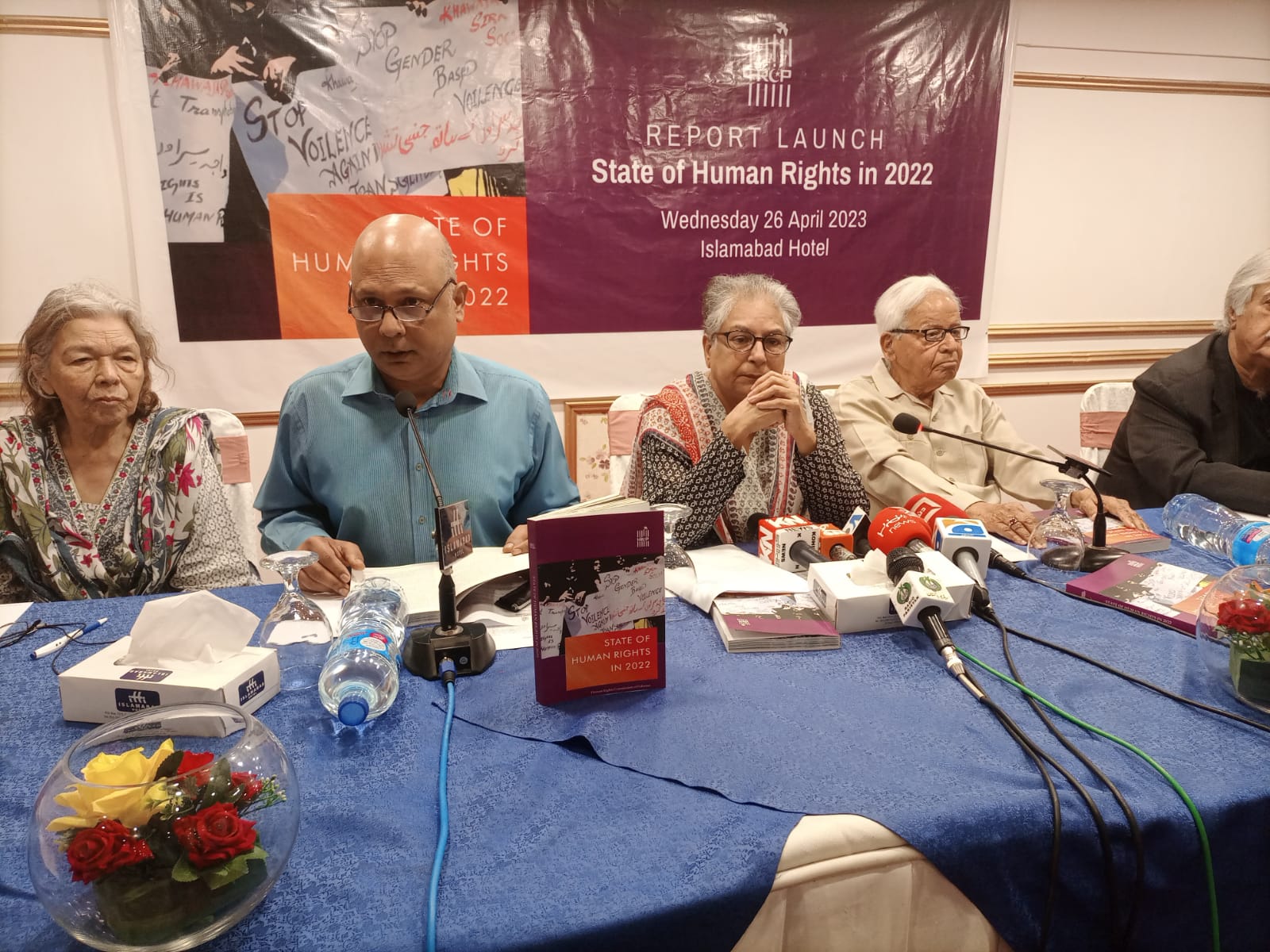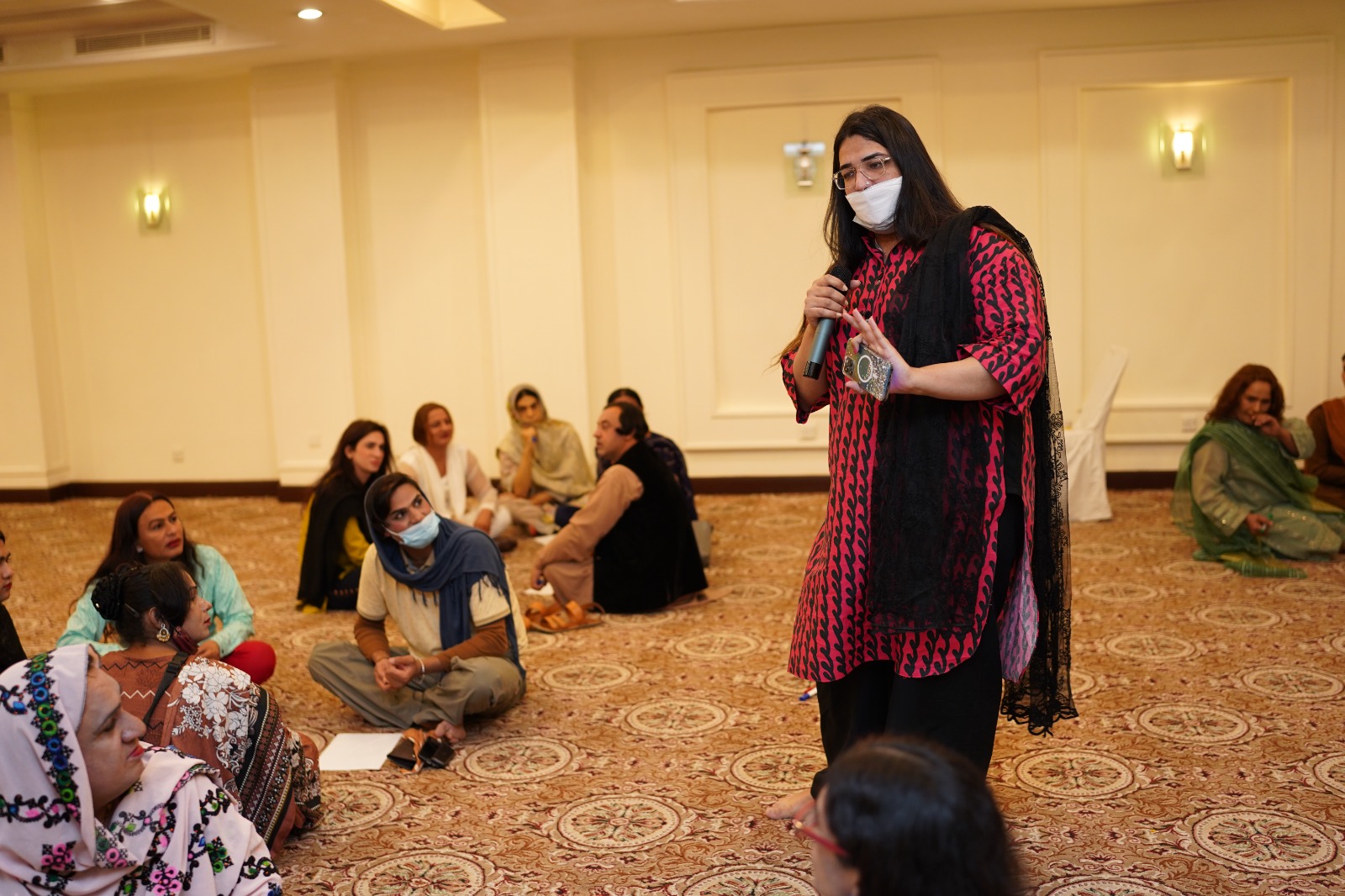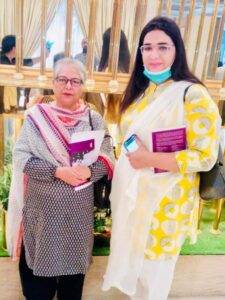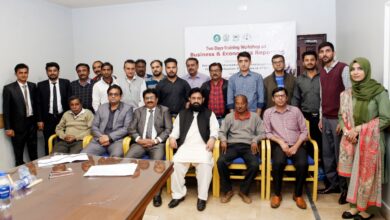Human rights are also severely affected by political and economic unrest in Pakistan, Report

Ismat Jabeen
The Human Rights Commission of Pakistan has released its latest annual report, which highlights that the atmosphere of political and economic unrest in Pakistan over the past year has severely affected the respect for human rights in the country. The report expresses concern over the significant impact of these issues on the human rights situation.
During the release of the report in Islamabad, the HRCP stated that not only did the human rights situation in Pakistan cause deep concern last year, but both the former Prime Minister Imran Khan’s federal government and the current Prime Minister Shehbaz Sharif’s administration also failed to ensure parliamentary supremacy. This failure further compounds the challenges faced by human rights in the country.
According to a new report by the HRCP, the Pakistani government failed to ensure respect for the supremacy of parliament, leading to an atmosphere of conflict and tug-of-war between parliament members, the administration, and the higher judiciary. This resulted in a negative impact on the reputation of higher state institutions.
During the release of the annual report for 2022, the Chairperson of the Human Rights Commission of Pakistan, Hina Jilani, expressed concern that political targeting of opponents and critics continued throughout the year, not only at the national level, but also at the social level. The ruling circles resorted to colonial-era laws to suppress dissent, and there was an alarming increase in terrorist incidents, resulting in the loss of 553 lives. This number of incidents was the highest in the past five years, as the government showed reluctance to end militancy.

Jilani also expressed concern over the increase in cases of enforced disappearances, particularly in Balochistan. Despite the National Assembly passing a bill criminalizing enforced disappearance, 2,210 cases remain unsolved to date.
On the occasion of the report release, Haris Khaliq, the Secretary General of HRCP, expressed concern about the increasing threats to freedom of religion or belief in Pakistan. While police reports of blasphemy charges have decreased, mob killings have apparently risen, with the Ahmadi community being particularly targeted. In Punjab, several places of worship were desecrated along with over ninety graves.
Haris Khaliq also stated that violence against women remained unchecked, with at least 4,226 cases of rape and gang rape, and the punishment ratio for the perpetrators was disappointingly low. In this report, HRCP attempted to dam the river in Koza, but there are still numerous other projects that need to be worked on. The Human Rights Commission is conducting fourteen large-scale research studies, particularly on widows, which are expected to be completed in May, followed by a national conference in June.
Yesterday, a report revealed that nineteen eunuchs had been killed this year. Syeda Mujeebah Batul, who is associated with the development sector in Pakistan and has worked tirelessly for women’s rights, particularly for transgender people, appreciated the report presented by the Human Rights Commission. She stated to JFHR, “The transgender community is excluded from society in the same way, and the reason for the recent violent acts is the Khawajsara Act of 2018, which was heavily criticized by conservatives. There was a strong reaction in Pakhtunkhwa, where not only were transgender people beaten up, but many were also killed.”

She further explained that when a particular influential group spreads false propaganda that people believe and imitate, the lives of minorities and transgender people are at greater risk. The government had intended to protect them through the Eunuch Act 2018, but due to the protests of religious scholars, eunuchs are now in more danger.
We spoke with transgender activist Nayab Ali about the violence and discrimination against transgender people, which is also the subject of this report. It is crucial for civil society to freely raise its voice against human rights violations. In this year’s report, she expressed happiness at seeing that the theme is transgender. It will not only raise awareness of atrocities against transgender people but also initiate a debate among the public that transgender people are human beings too.
She expressed his view that the data presented in the report is sanitized and presented in a sugar-coated manner that gives more credit to the government’s actions, while the situation is more dangerous. He argued that genocide is being carried out in the name of jihad against transgender people in the country, and that transgender people are being called “dirty creatures” in parliament. There are also nationwide protests, and transgender activists are being threatened with death. Despite UN envoys’ letters to protect human rights workers over the past year, the state has been completely unable to respond. Transgender activists have been forced to flee the country, but these facts are not in the report. Nevertheless, he appreciated HRCP’s efforts.
The mistreatment of minorities, particularly Ahmadis, is no secret. An Ahmadi told JFHR on the condition of anonymity, “What benefit do we get from this report that is issued every year? Is it possible to cure the atrocities that happened to us? We live in fear and keep our identity hidden so that, in case of being caught, no one will be falsely accused.” He believes that issuing the report is a good thing, but the real problem is the implementation of the law and rule.
The report of the Human Rights Commission calls for urgent action to address these issues if the state is to move towards a people-friendly strategy in terms of politics, law, and governance.





